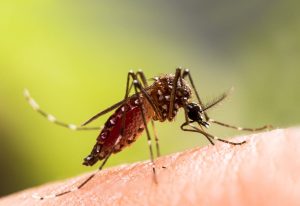Genes can put some men at heightened risk of prostate cancer, but a new study suggests they can undo much of that potential harm with a healthy lifestyle.
Researchers found that among men at increased genetic risk of prostate cancer, those who maintained a healthy lifestyle were much less likely to die of the disease over nearly three decades.
“Healthy” meant they exercised regularly, refrained from smoking, kept their weight down and favored fish over processed meat.
Men who met those goals had a 1.6% lifetime risk of dying from prostate cancer. That compared with a 5.3% chance among their counterparts with unhealthy habits, the investigators found.
However, healthy habits did not appear to protect men from developing prostate cancer in the first place, noted lead researcher Dr. Adam Kibel.
It’s possible they instead lower the risk of aggressive prostate cancer, according to Kibel, chief of urology at Brigham and Women’s Hospital, in Boston.
Prostate cancer is very common: About one in eight men will be diagnosed with the disease in their lifetime, according to the American Cancer Society (ACS). But the cancer is often slow-growing, and may never progress to the point of threatening a man’s life: Only one in every 41 men actually die of prostate cancer.
So although men may not be able to exercise their risk of the disease away, lifestyle may matter in the aggressiveness of the cancer.
“One way to look at it is, an unhealthy lifestyle might throw fuel onto the fire,” Kibel said.
The study, published online recently in the journal European Urology, involved over 12,000 men from two long-running research projects. All were health professionals who, starting in the 1980s, completed periodic questionnaires on their health and lifestyle habits. They also gave blood samples, so their genetic data could be analyzed.
Prostate cancer has a large genetic component, and over 200 gene variants have been linked to the risk of developing the disease. Kibel and his colleagues used that information to assign each participant a “polygenic risk score” for their odds of developing prostate cancer.
Each man was also given a healthy lifestyle score, earning one point for each of six factors: keeping their weight below the obesity cutoff; regularly getting vigorous exercise, like jogging; not smoking; and regularly eating fatty fish (like salmon); eating tomato products; and limiting processed meats. In particular, studies have tied those three diet habits to a lower risk of prostate cancer or death from the disease.
Over 27 years, just over 3,000 men developed prostate cancer, and 435 died from it. Genes made a big difference: Men with genetic risk scores in the top 25% were over four times more likely to die of the disease, versus those in the bottom 25%, the investigators found.
But for those same men, lifestyle also had a big impact. Those who stuck with at least four of the six healthy lifestyle factors cut their odds of dying from prostate cancer by 45%, versus men who adhered to few or none.
Of all lifestyle habits, Kibel said, exercise seemed most important, followed by maintaining a healthy weight.
The findings do not prove that those healthy habits, per se, saved some men’s lives. But Dr. William Dahut, chief scientific officer at the ACS, called the results “encouraging.”
“What’s interesting is this suggests that a healthy lifestyle may not decrease your risk of developing prostate cancer, but may decrease your risk of lethal prostate cancer — which is much more important,” said Dahut, who was not involved in the study.
In the real world, men would not know their polygenic risk score, but both doctors said that could change in the coming years.
For now, men can get some sense of their genetic risk based on family history, though that’s not the whole story, Dahut said. Having a father or brother with prostate cancer more than doubles a man’s risk of developing the disease, according to the ACS.
Based on the latest findings, Kibel said he suspects that a healthy lifestyle would help lower the excess risk linked to family history.
There was no evidence that lifestyle changed the risk of lethal prostate cancer among men at lower genetic risk. That, Kibel said, may be because few of those men died of the disease — making it hard for any lifestyle measure to show an impact.
However, there are plenty of reasons beyond prostate cancer for men to adopt healthy habits, both doctors said.
“People are generally happier when they’re in good physical shape,” Kibel noted.
He also encouraged men to learn about their family medical history. While women typically have a good sense of that, Kibel said, he has found that male patients usually don’t know if any relatives have had prostate cancer.
More information
The American Cancer Society has more on prostate cancer.
SOURCES: Adam Kibel, MD, chief, urology, Brigham and Women’s Hospital, professor, surgery in urology, Harvard Medical School, Boston; William Dahut, MD, chief scientific officer, American Cancer Society, Atlanta; European Urology, May 28, 2022, online
Source: HealthDay
Copyright © 2024 HealthDay. All rights reserved.

-300x200.jpeg)









-300x241.jpeg)




